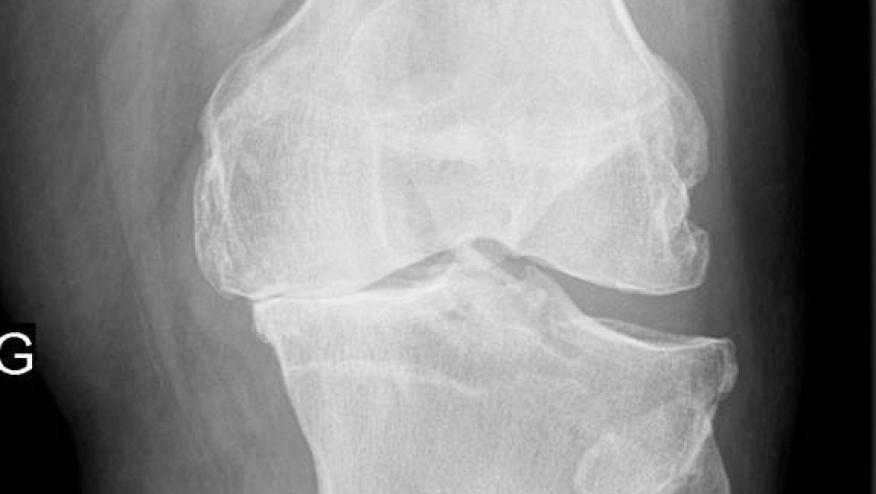Polygenic Risk Scores to Identfy Severe Knee and Hip Osteoarthritis Save

Prevention of knee and hip osteoarthritis would obviate considerable disability and future surgery. We may be one step closer according to a prospective European GWAS study showing polygenic risk scores (PRSs) significantly associated with higher risks for knee and hip OA joint replacement.
This study identified genetic risk variants from genome-wide association analysis of OA patients to calculate polygenic risk scores (PRSs) associated with subsequent need for joint replacement surgery.
PRSs were calculated in 12,093 individuals of European genetic descent aged ≥70 years, enrolled into the ASPREE (ASPirin in Reducing Events in the Elderly) trial, an Australian cohort of older adults that collected information on joint replacements was collected. Rougly 10% of participants had knee and hip replacements (11.8% and 10.7%).
PRSs were identified that associated with risk of knee (odds ratio [OR]=1.13, 95% CI 1.07-1.20) and hip (OR=1.23 [1.16-1.30]) replacements.
Those with high PRS had increased risk of knee (OR=1.44) and hip (OR=1.88) replacements, compared with low PRS, with the strongest associations seen with PRSs and hip replacement risk in females. There was no interaction between PRS, treatment group or obesity and the risk of knee or hip replacement.
An accompanying editorial by Yau and Loughlin reviews other recent GWAS studies showing genetic associations with OA progression. Moreover we need to be clear about PRS associations with high-risk behaviors. They explain the calculation, use and limitations of the PRS. While the "PRS represents the burden of risk variants for a particular disease" they note the associations thus far have been modest. They propose that futher GWAS and PRS research is needed, along with therapeutic and biomarker development to better identify patients at increased risk of OA and its progression.










If you are a health practitioner, you may Login/Register to comment.
Due to the nature of these comment forums, only health practitioners are allowed to comment at this time.